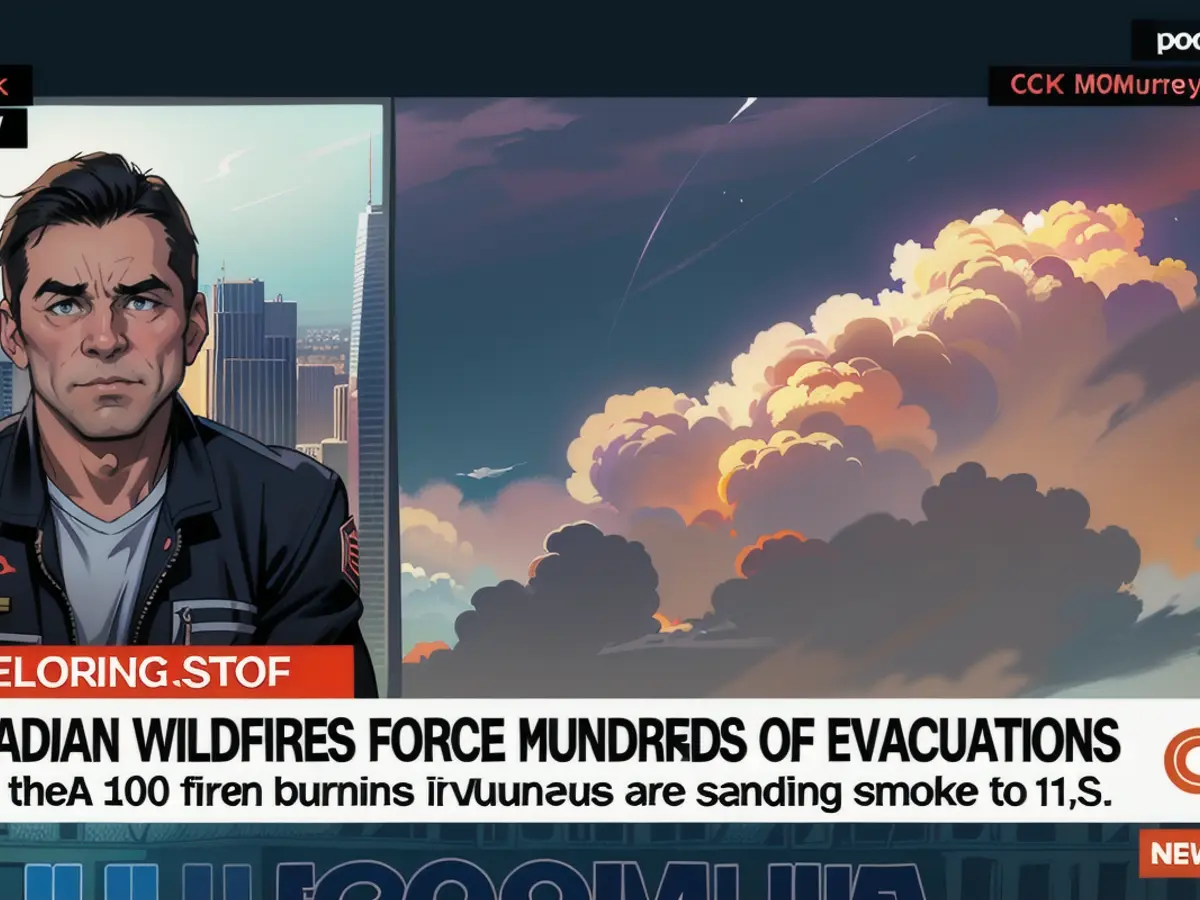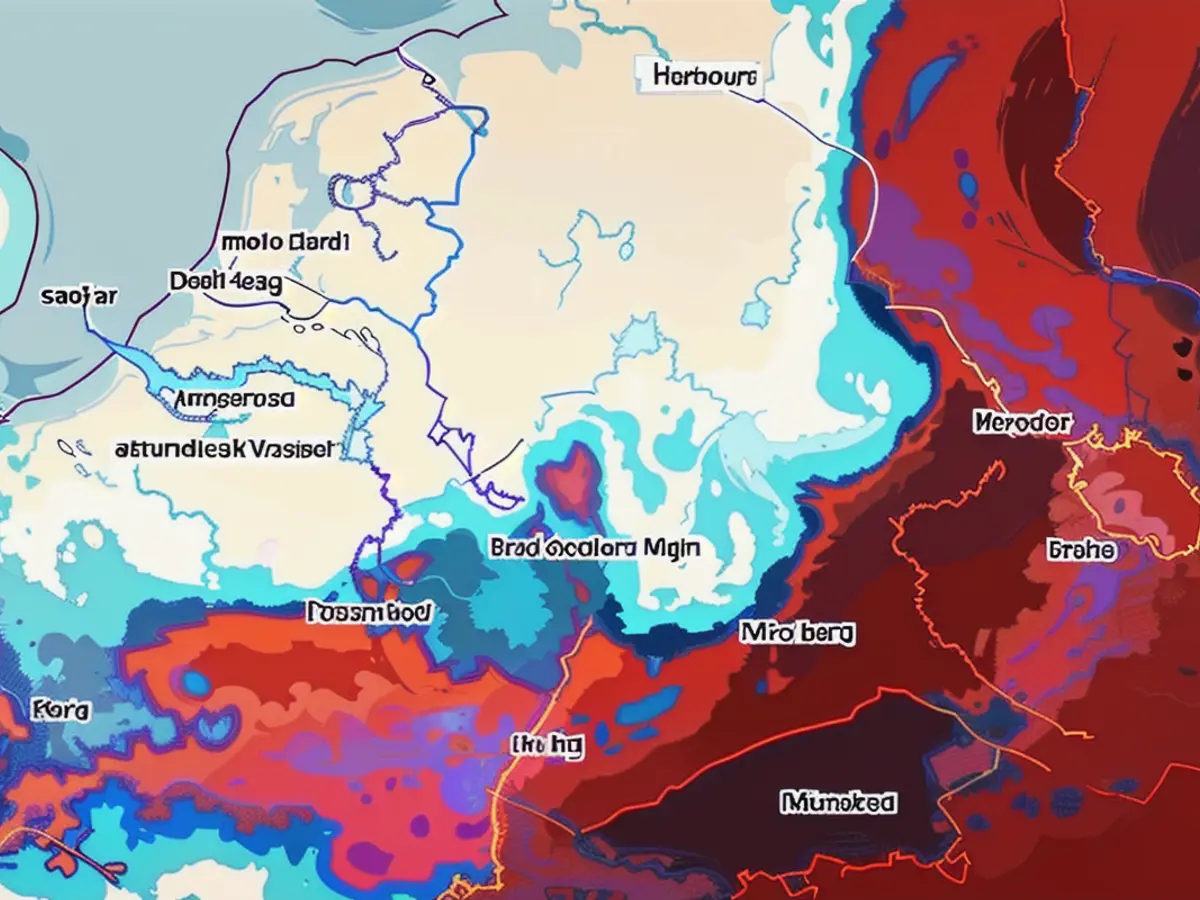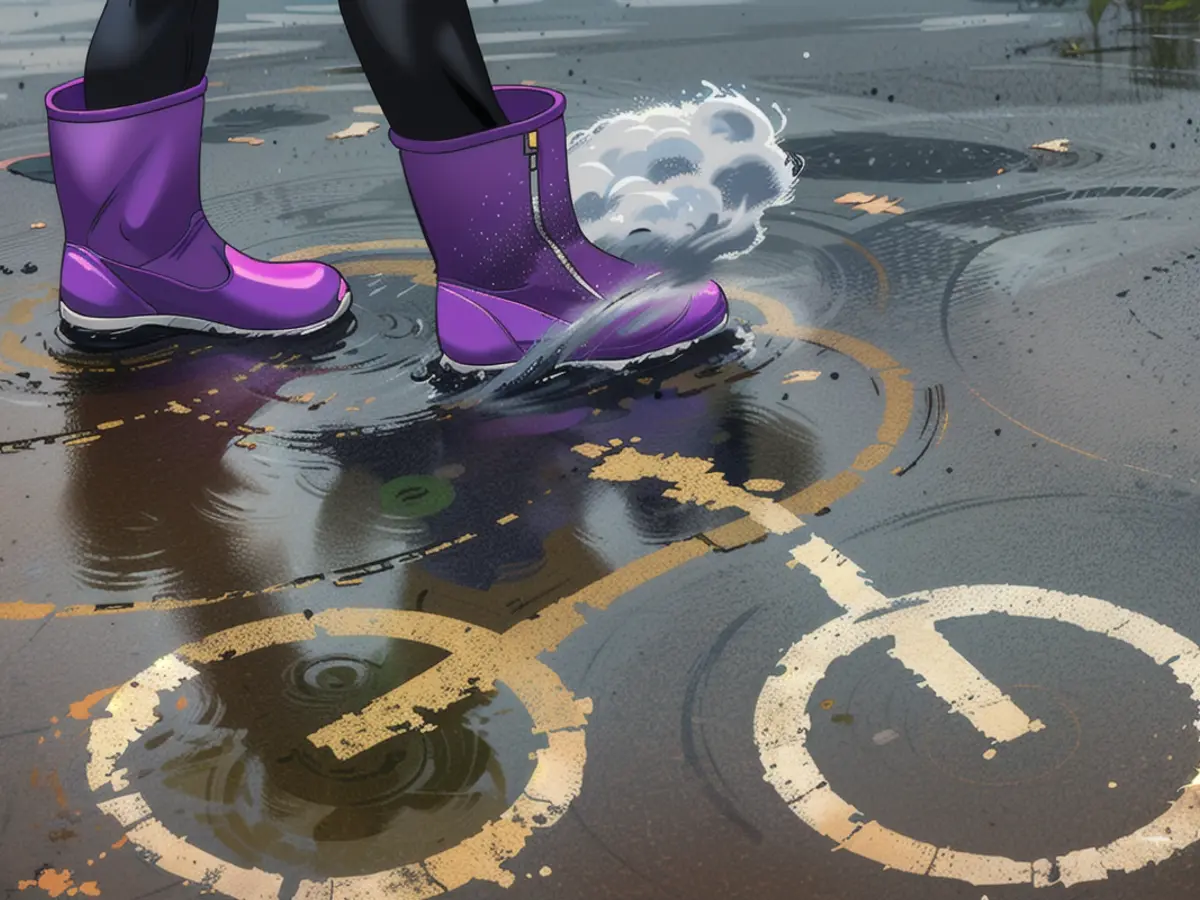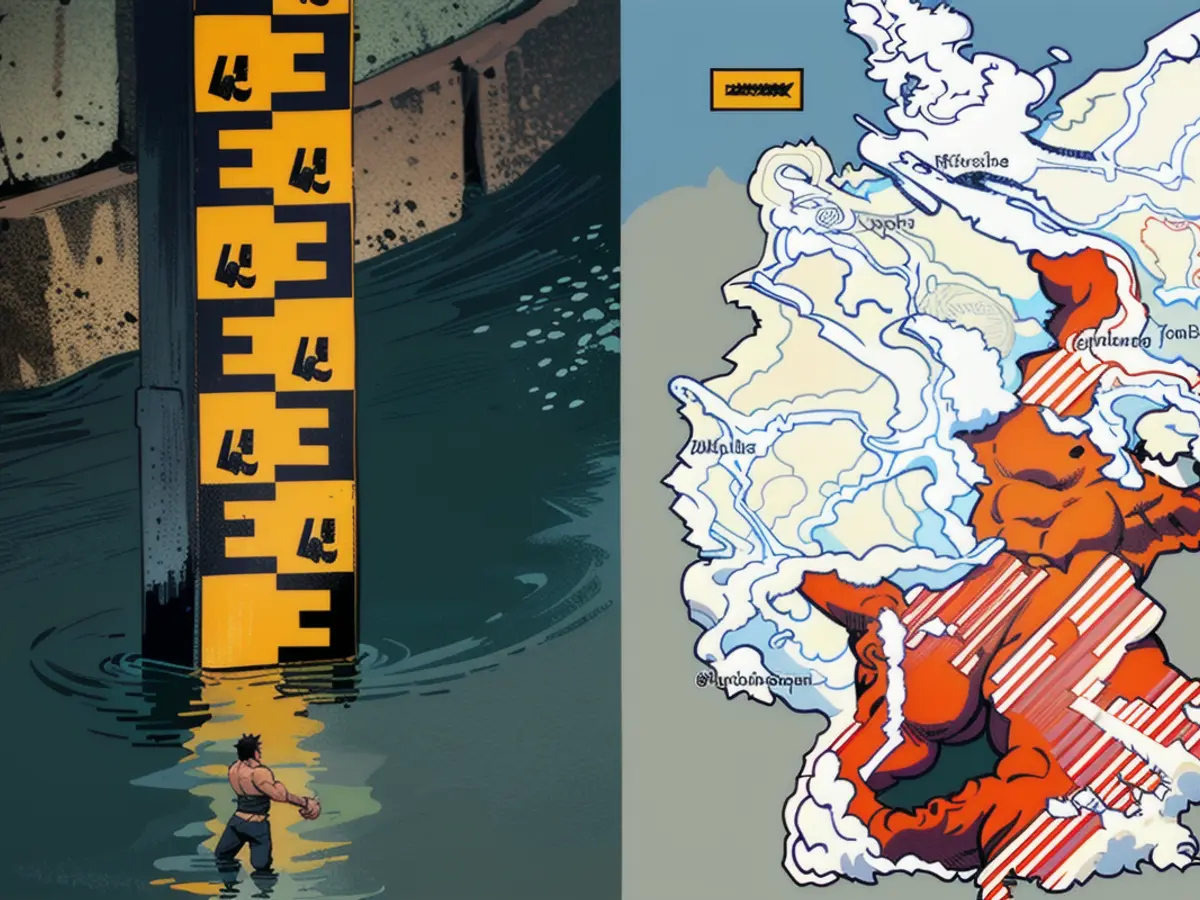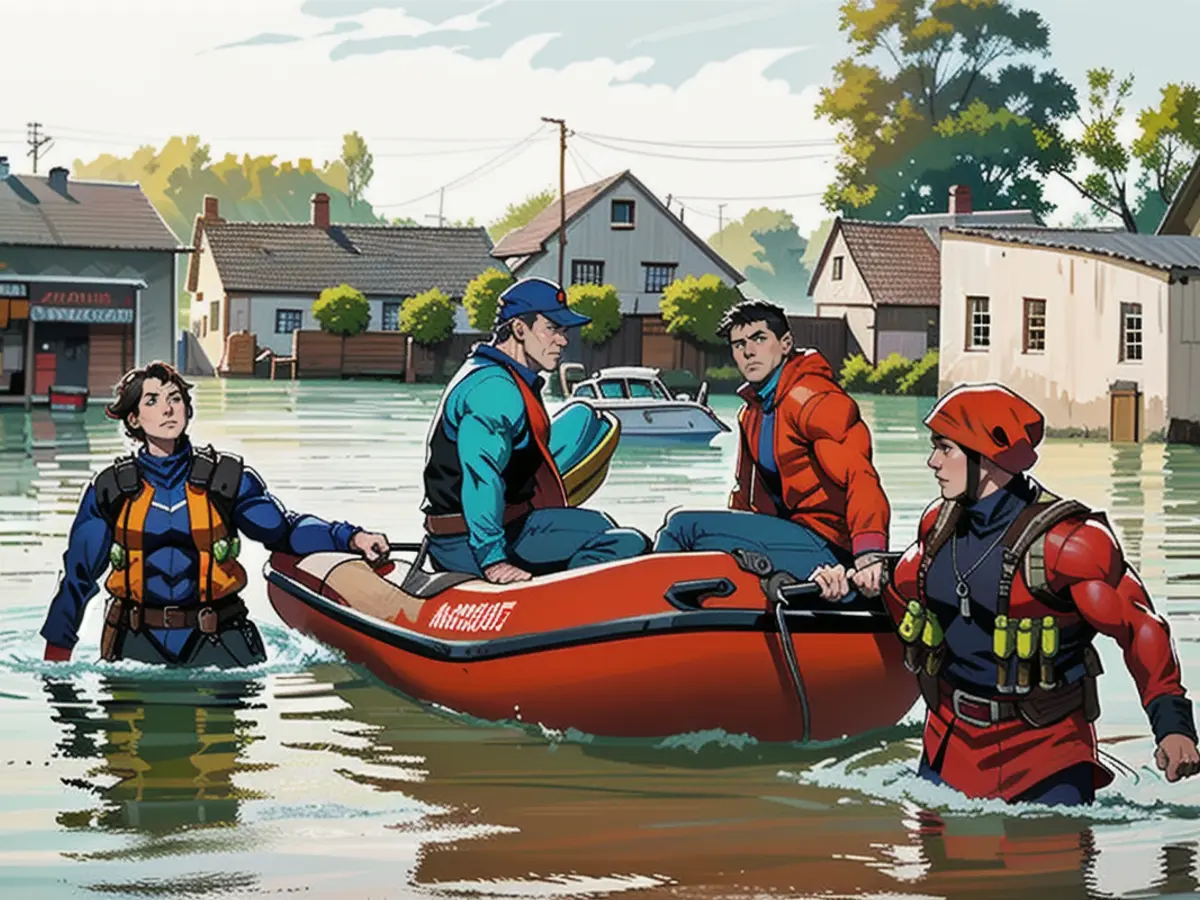Out-of-control wildfires burn through Canada, endangering a community caught in the path of previous disasters
Firefighters were frantically battling an uncontrolled wildfire spreading rapidly towards Fort McMurray in Alberta, Canada, causing thousands of locals to evacuate their homes. The menacing 51,000-acre fire rapidly approaching the city had residents comparing it to the 2016 fires that forced 90,000 people to flee and left billions of dollars worth of damages.
Authorities have issued evacuation orders for several neighborhoods, including Prairie Creek, Beacon Hill, Abasand and Grayling Terrace. The fire has forced these communities to abandon their homes, leaving behind everything they own. Since wildfire behavior often worsens in a warming world, officials urged residents from the rest of the city as well as several suburbs to prepare for potential evacuation.
The impenetrable blanket of smoke hindered the visibility of firefighters, posing danger to their lives. Some firefighters had to be withdrawn due to the impact of the extreme fire behavior.
The exceptionally dry and windy conditions in various provinces have dramatically fuelled the uncontrolled growth of many Canadian wildfires. Despite the anticipated wet weather, firefighting efforts will face challenges throughout midweek due to high winds.
Regional Fire Chief Jody Butz reassured residents, acknowledging that memories of the 2016 fires triggered significant anxiety, particularly among those who experienced the ravages of the 2.4 million-acre blaze firsthand. Although over a billion dollars were incurred from this devastation, Butz was adamant that measures were being taken to protect the area.
The wildfires in Canada have had a nationwide impact, with carbon particles from the blazes reducing air quality in parts of the US, creating hazardous conditions. On the evening of May 3rd, air quality deteriorated from the Dakotas to Oklahoma as the clouds of smoke swirled across the country. Canadian officials warned these adverse effects would persist until midweek.
Over the past few days, numerous provinces have been facing multiple massive wildfires. The necessity for evacuations has become a grim reality for Canadian citizens, who had no choice but to flee their homes with their most precious possessions, their children and their pets.
Manitoba Premier Wab Kinew expressed empathy for residents, noting the distressing circumstances of leaving behind their property and community without any guarantee it would be intact upon their return. Authorities in Manitoba are currently managing one of the largest wildfires in the nation – consuming beyond 78,000 acres and was just one mile away from Cranberry Portage, forcing over 500 residents to evacuate.
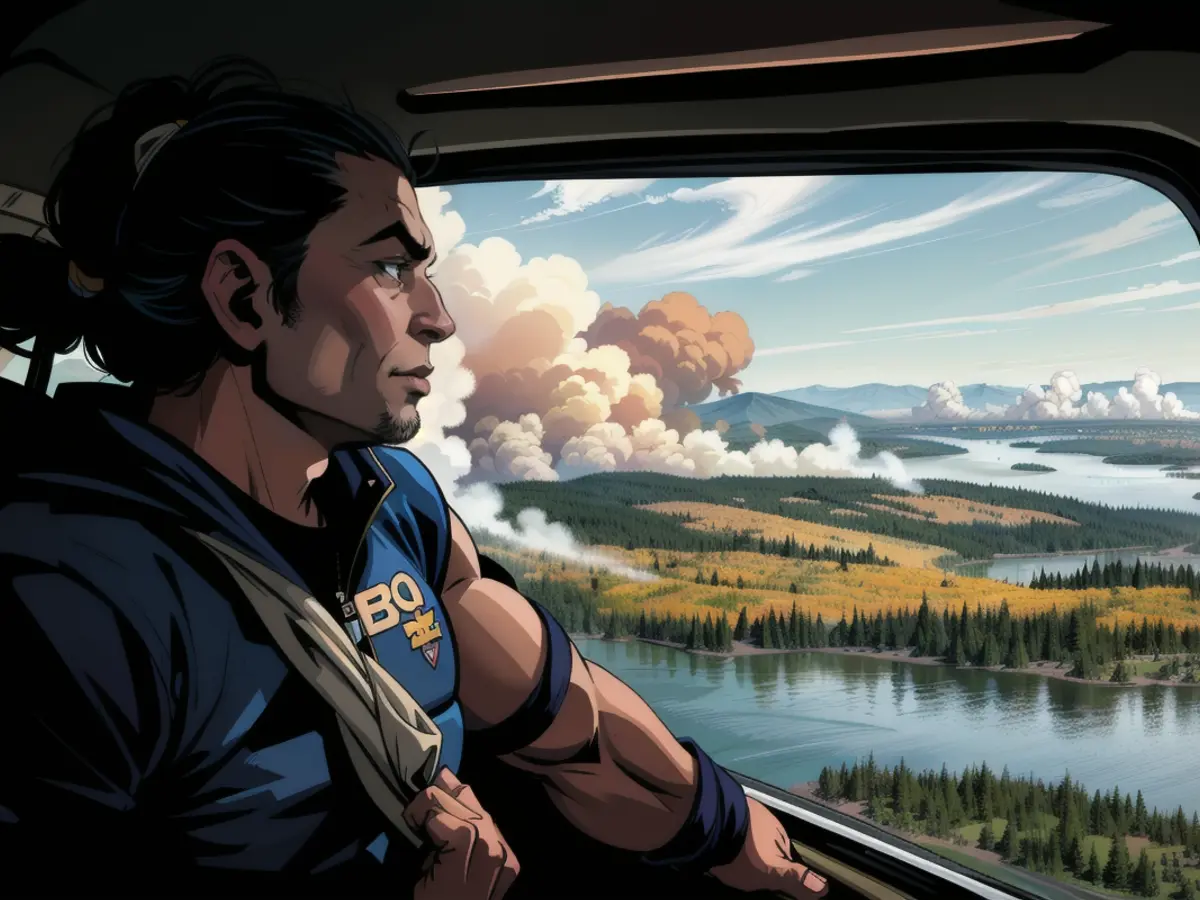
Fort Nelson, British Columbia locals faced similar upheaval as their town's northeastern Parker Lake Fire grew to 21,000 acres and was 1.6 km west of the settlement. More than 4,700 people have been given evacuation orders. The local Rick Seidel, owner of a construction and trucking company, heroically chose to stay back to help mitigate the spread of flames.
“We've had all our equipment ready and all our water trucks were loaded,” Seidel told the CBC. “When the call came, we jumped into action. It’s really bad. It’s a war zone right now.”
As the world heats up, climate change's effects become more apparent in rampant forest fires. The region has been suffering from persistent droughts and unseasonal snowfall, making the Canadian forests highly susceptible to wildfire incursions. An expert at the BC Wildfire Service, Ben Boghean, explained how these weather extremes bled into 2024, citing the short-lived snowpack this past winter and the flawed forest conditions contributing to these raging fires.
Last year’s Canadian fire season ushered in an era of unparalleled devastation, with British Columbia's fires billowing up in size alongside residences and consuming a land area larger than the state of Maryland, according to the BC Wildfire Service.
Today, the situation remains dire, with a reported 130 fires plaguing Canada – 43 of them out of control. They also include so-called “zombie fires,” the embers of last season's widespread blazes smoldering underground and bursting into uncontrollable re-ignition when the weather turns warmer. [Highlighting: The worsening weather conditions and level of destruction from wildfires in Canada due to climate change underscore the need for urgent action to combat global warming.] [List: Summary of the situation in Canada]- Out-of-control wildfire nears Fort McMurray.- Evacuation orders for some neighborhoods, possible evacuations for surrounding areas.- Smoke causes visibility issues for firefighters.- Extremely dry and windy conditions exacerbate the wildfires' spread.- Federal authorities reassure residents, call for precaution.- Multiple provinces face massive wildfires.- Parts of the US experience diminished air quality due to Canadian fires.- Experts stress the impacts of climate change on worsening wildfires in Canada.- 2024 season follows in the footsteps of 2023, Canada's most severe fire season.- Quick actions taken to prevent further destruction amidst wary warnings.[Image: A massive wildfire raging through the Canadian countryside, towering over its surroundings. Cars crowd the evacuation routes as piloted by anxious civilians. A rapidly spreading wall of flame threatens the city of Fort McMurray behind firefighting personnel work tirelessly to prevent the advancing fire from engulfing the city.]- Can [https://edition.cnn.com/world/americas/canada-wildfire-response/index.html Canada's wildfire response]
"Historically, it was the winter conditions that helped to extinguish many fires from previous seasons," commented Bowinn Ma, the British Columbia minister responsible for emergency preparedness and climate adaptation. "However, this year, the persistent dry spells and abnormally high temperatures have made it difficult for these lingering fires to be snuffed out as they usually would be."
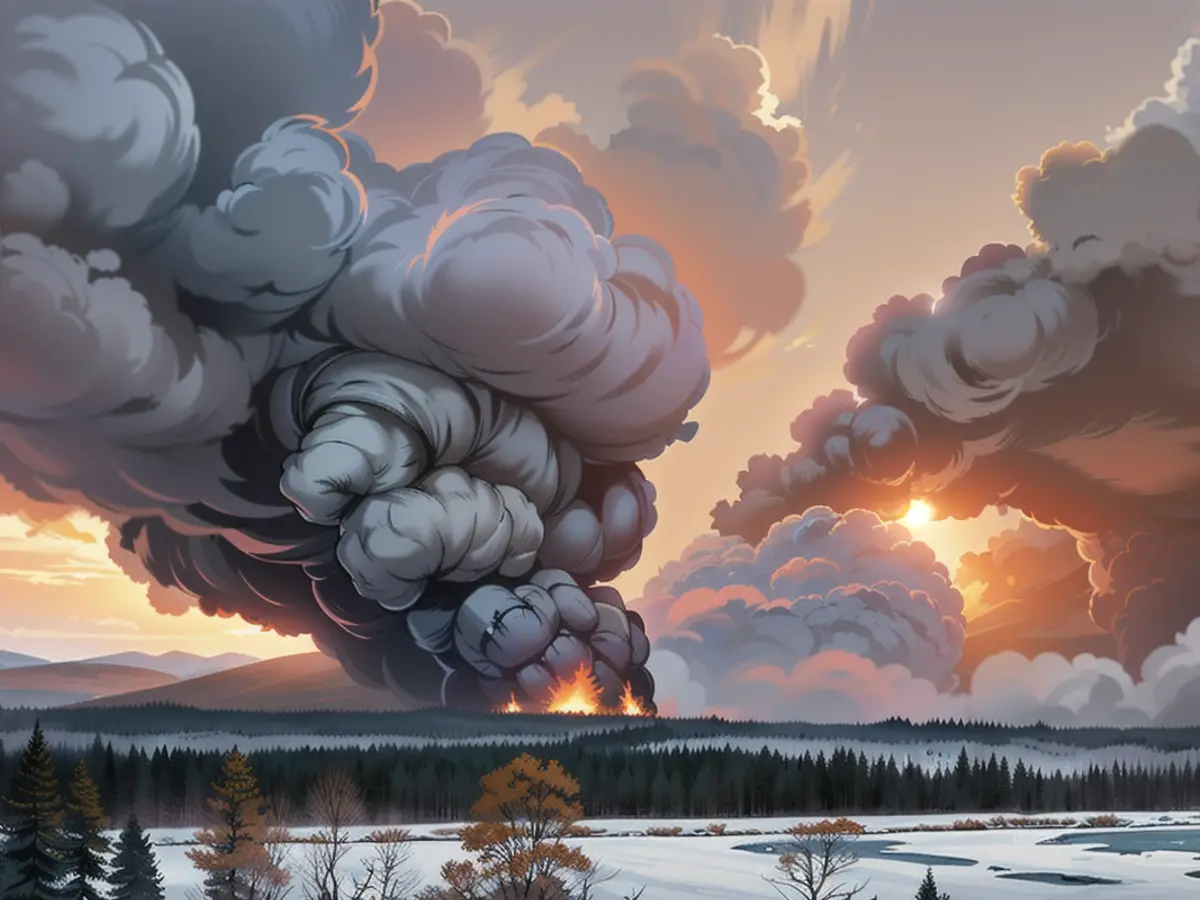
Read also:
- Rain expected again: The situation in the flood areas remains threatening
- Continuous rain until Thursday: Concerns about collapsing dykes are growing in the flood areas
- Flood situation remains tense - more rain forecast
- Flood situation remains tense - weir on the Elbe is opened
Source: edition.cnn.com
